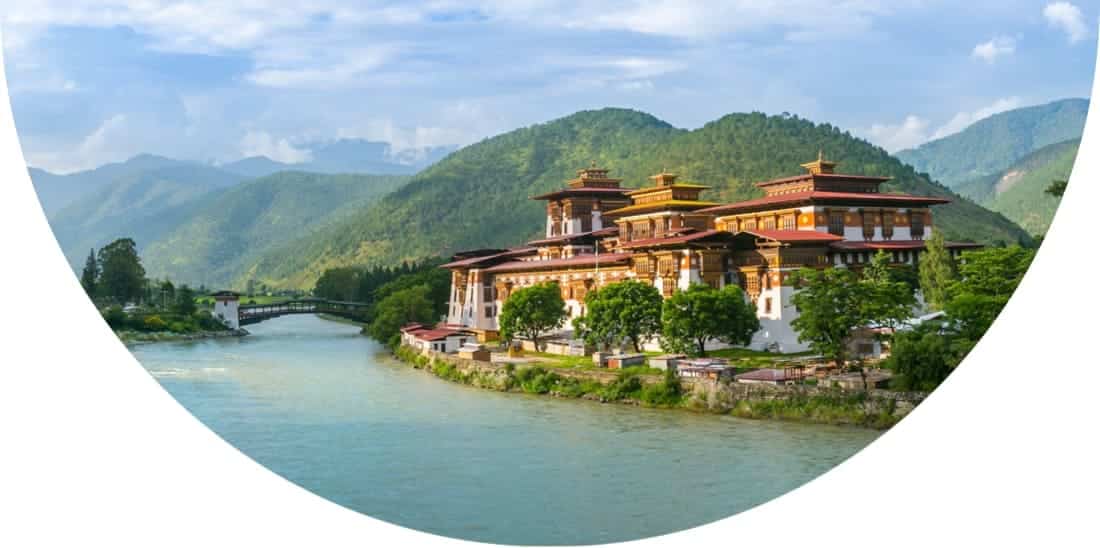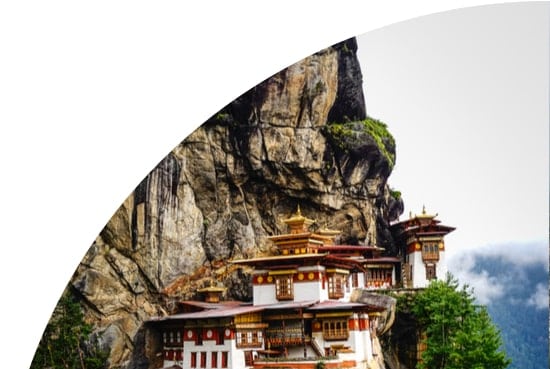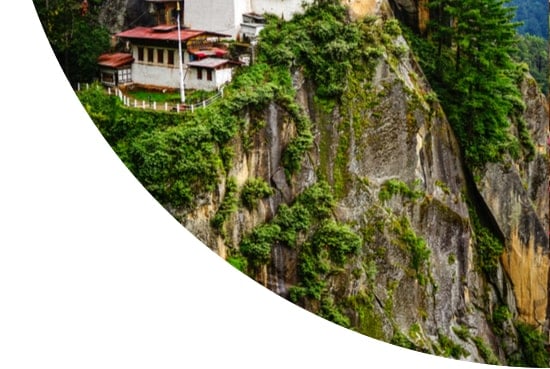Crimean-Congo haemorrhagic fever (CCHF) is primarily spread to humans either by infected ticks or animal blood. Human-to-human transmission can also occur resulting from close contact with the blood, organs or other bodily fluids of an infected person.


Travel Vaccinations for Bhutan
Recommended Vaccines for Bhutan
The level of protection needed depends on your medical history and travel itinerary. Book now to get a personalised recommendation from our specialist travel nurses. The consultation costs £20 plus any vaccines you decide to take.
Flexible appointments with no upfront payment
Book Now
Destination Information for Bhutan
The small country of Bhutan is a Buddhist Kingdom on the Eastern edge of the Himalayas, bordered by China and India. It’s a popular trekking destination, known for its stunning mountainous landscapes and mysterious monasteries and fortresses. The Bhutan government aims to limit the impact that tourism has on the country’s culture and on the environment, so visitors are required to join an authorised tour rather than making their own way around.
The exquisite scenery and wildlife of this fascinating country, along with the importance placed on tradition, culture and religion makes a visit to Bhutan unlike anywhere else. The country is home to a number of national parks, wildlife sanctuaries and nature reserves, where tourists can see snow leopards. Villages are tiny and picturesque, set in the dramatic landscape and populated by the friendly Bhutanese people.
If you’re part of an organised tour, your itinerary is likely to include some of Bhutan’s most important sites, including the Taktsang Monastery, also known as Tiger’s Nest, in Paro. This significant Buddhist site is situated on a 1,200 metre cliff. From Paro, the Druk path leading to the capital, Thimphu, is a popular trekking route. For adventurers looking for a stunningly beautiful destination with a colourful festival culture and plenty of opportunity to stay active, Bhutan is perfection.
Infections and Outbreaks frequently change from country to country and by attending our clinics you will be given the most up to date clinical and safety advice from our team of specialists. Our advice to you often includes aspects such as:
- Food and water hygiene
- Insect and animal bite avoidances
- Personal safety
- Sexually transmitted infections
- Sun protection
- Altitude sickness
Malaria and regions within country:
There is a high risk of P.Falciparum malaria in the souther half of the country, including the areas of Chhukha, Dagana, Shemgang, Pemagatshel, Sarpang and Samtse. Anti-malarial medication is advised in these areas. The northern half of Bhutan including the city of Thimphu has a low to no risk of malaria and anti-malarial medication is not normally advised.



